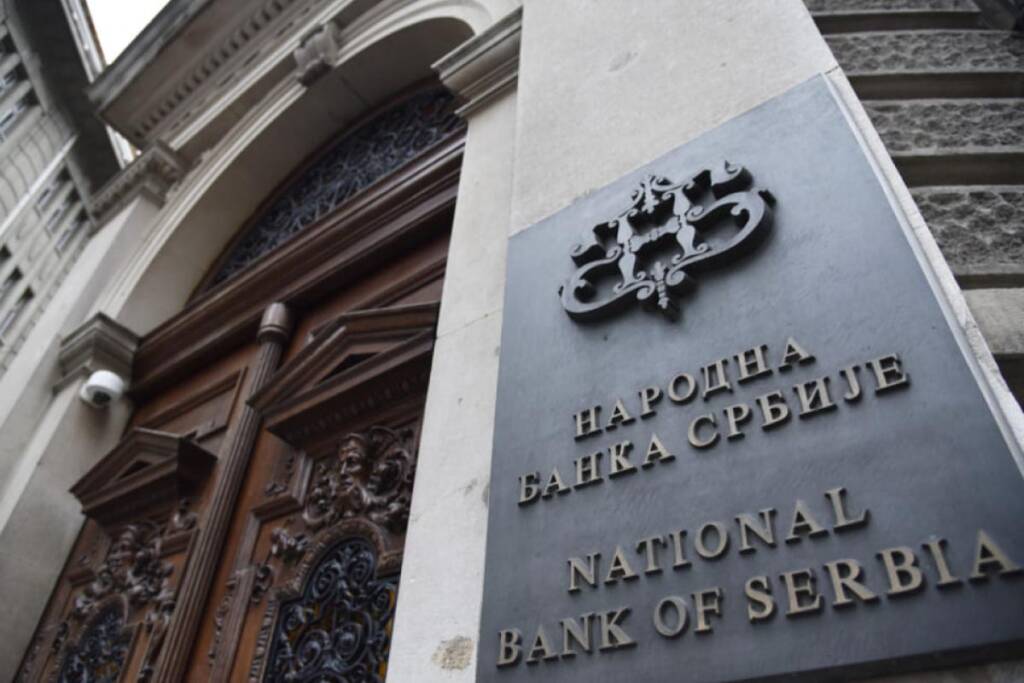The Eighth Edition of Our Quarterly Newsletter is Here!
Stay informed about key legal developments in the region – join us!
Your opinion matters!
We kindly ask to take a moment to provide your valuable feedback by completing our survey.


New Decision of the National Bank of Serbia in the Field of Financial Services Consumer Protection
The National Bank of Serbia (hereinafter: NBS) has adopted a new Decision on the Procedure for Handling Complaints, Grievances, and Mediation Proposals (“Official Gazette of RS”, No. 51/2025) (hereinafter: the Decision), which came into force on July 1, 2025. This Decision repeals the previous Decision on the Procedure for Handling Complaints and Grievances of Financial Services Consumers (“Official Gazette of RS”, No. 1/2019, 50/2019, 87/2021, and 77/2023), thereby enhancing the institutional framework for the protection of financial services users’ rights.
One of the key changes concerns the deadline for submitting a complaint against a service provider. In addition to the objective deadline of three years from the date of the rights violation, a subjective deadline of six months from the moment the user became aware of the violation is now introduced. This effectively establishes a more restrictive regime, requiring the user to react promptly after learning of the violation, thereby limiting delays and potential abuses.
The definition of a complaint has also been expanded. It now includes any written submission by the user in the prescribed format, including transaction disputes, regardless of how the user has titled their correspondence. Remote communication channels now cover all means of submitting complaints and exchanging information without physical presence (e.g., internet, electronic and mobile applications, email, post, phone).
The most significant innovation is the formalization of the mediation process before the National Bank of Serbia. This procedure represents a voluntary, out-of-court dispute resolution mechanism. It is initiated at the proposal of one party, with the consent of the other, through the signing of an agreement to engage in mediation. The mediation is conducted by authorized NBS employees with the necessary knowledge, qualifications, and experience, and who are appointed by the Governor to serve as mediators. The NBS conducts the procedure free of charge, either on its premises or remotely, if technical conditions permit, using appropriate means of communication.
The procedure is based on the principles of confidentiality and equality of participants and may be concluded by signing a settlement agreement, the mediator’s decision to terminate the procedure, one party deciding to withdraw from the process, or the expiration of 60 days from the date of the agreement to mediate. The settlement agreement must be in writing and can serve as an enforceable document if it includes a debtor’s statement agreeing to enforcement after the obligation becomes due (an enforceability clause), along with an enforceability confirmation issued by the NBS.
The new Decision is expected to contribute to more efficient dispute resolution, reduce the number of court proceedings, and strengthen legal certainty and transparency in the financial services sector.


The Regulation on the Cessation of the Regulation on the Criteria for Granting Incentives to Employers who employ Newly Settled Persons in the Republic of Serbia comes into force
Starting June 21st 2025, the Regulation on the Criteria for Granting Incentives to Employers who employ Newly Settled Persons in the Republic of Serbia officially ceases to apply. In 2022, this Regulation represented a key mechanism in economy policies aimed at attracting expert work force and strengthening the competition of domestic employers within the global market.
Namely, through the direct subsidy system, the state offered a 70% reimbursement of the calculated income tax and 100% contributions for mandatory pension and disability insurance to employers who employ newly settled persons indefinitely, with a contracted salary of at least RSD 300,000.000 per month – on the condition that these persons haven’t previously resided on the territory of Serbia for more than 180 days within a two-year period.
It is important to mention that the cessation will not be applied retroactively, meaning that employers who employed newly settled persons under the prescribed regulations by the end of 2024, retain the right to subsidies for the period under which they have already applied. Aside from this, the reduction of the base from the Citizens Income Tax Law, which allows for a reduction in the tax base on the salaries of the aforementioned category of employees, remains in effect.
The official explanation for the cessation of the Regulation was the sudden increase in the number of applications and the limitations of the state budget in terms of further implementation of the planned obligations. However, trade unions and some experts indicate that the reasons could also be broader fiscal policy and the reallocation of funds to other sectors. Nevertheless, it remains to be seen whether the state will offer new incentives in the future to attract scarce personnel or whether it will shift its focus to other priorities.


Real Estate Market at a Crossroads: Structural Issues and Modernization Pathways
The real estate market in Serbia is at a turning point. Nearly half of buildings and land parcels are still not registered in the cadastre, leaving millions of citizens without legally recognized ownership. This situation directly slows down restitution, bankruptcy, enforcement, and mortgage registration processes.
The legislative framework in this area is often inconsistent, and the procedures for legalization and restitution take too long and are inadequately regulated. All of this creates legal uncertainty, discourages investment, and burdens the judicial system. In addition, the lack of a unified and up-to-date property register further complicates land planning and management, especially in urban areas.
In this context, comprehensive reforms are becoming a priority. The proposed reforms and measures include:
- Spatial Planning and Digitalization
- Introduction of a unified digital platform for spatial plans (e-Plan) accessible to all stakeholders.
- Harmonization of different levels of planning and removal of administrative barriers for investors.
- Tax Reform and Mass Property Valuation
- Reform of the property tax system to make it fairer and more transparent, enabling more rational land use and increased management efficiency.
- Completion of mass property valuation to ensure accurate and up-to-date value recording.
- Improvement of the Restitution, Bankruptcy, and Enforcement System
- Introduction of electronic sales of real estate in bankruptcy proceedings to increase transparency and competitiveness.
- Enabling more efficient use of bankruptcy assets as collateral for financing buyers.
- Clearly defining the legal framework for mortgages to increase the security of creditors and property owners.
- Public Property and Land Management
- Completion of the public property inventory and development of effective plans for its management and utilization.
- Use of electronic auctions for the sale of public assets to increase transparency and generate better revenues.
- Support for Infrastructure Projects
- Alignment of legislation with European standards, alongside investment in capacity building and process digitalization, to accelerate the implementation of nationally significant projects.
Reforms in the field of real estate management are crucial for strengthening legal certainty and improving the investment climate in Serbia. Implementation of the recommended measures would enable more efficient land management, reduce bureaucratic obstacles, and create conditions for sustainable economic development.
It is essential that all stakeholders – from state institutions and local governments to citizens and the business community – are involved in this process in order to jointly build a modern and transparent real estate management system.


Employment Contract Termination and Data Protection: Boundaries of Lawful Procedure
Termination of an employment contracts is never a pleasant situation. Even when an employee’s behavior, such as failure to fulfill work obligations or breaches of work discipline, justifies termination, the employer may face additional challenges during the process.
First and foremost, strict compliance with the legal procedure prescribed by the Labor Law is essential. This includes issuing a Notice of Grounds for Termination of the Employment Contract, which must precisely state all relevant facts and circumstances leading to such a conclusion. Any omission of crucial information in this document may result in a successful legal challenge before the competent court.
Next, the proper and lawful delivery of this document to the employee is of critical importance. The preferred method is personal delivery to the employee at the employer’s premises, in the presence of a witness. However, if this is not possible, the next option is delivery to the employee’s registered residence or place of stay. Should this also prove unsuccessful, the final step is publishing the document on the employer’s notice board.
Here, an additional problem arises – potential violation of personal data protection regulations. Namely, the Notice often contains personal data of the employee, such as home address (city, street, and number) and citizen identification number (JMBG), whose disclosure could constitute unlawful data processing.
According to the Commissioner for Information of Public Importance and Personal Data Protection, publishing such data on a notice board constitutes a violation of Article 5, paragraph 1, item 1) in relation to Article 90 of the Law, as well as Article 5, paragraph 1, item 3) of the Personal Data Protection Act. The Commissioner clearly emphasizes that although the Labor Law procedure is formally observed, this does not override the obligation to respect the employee’s right to personal data protection. In the specific case considered, the Commissioner issued a warning to the employer, who subsequently removed the contested document from the notice board and trained staff to prevent recurrence.
From the above, it follows that when publishing documents on the notice board, the employer must be doubly careful – both in respecting labor law procedures and in protecting personal data.
Note: In this text, the Notice of Termination of Employment Contract is taken as an example, but data protection applies equally to other documents concerning employees that may be posted on the employer’s notice board.


The Law on Exercising Rights from the Alimony Fund Comes into Power
On June 25th 2025, the Law on Exercising Rights from the Alimony Fund came into power in the Republic of Serbia.
The Alimony Fund is a budgetary fund from which the right to maintenance will be exercised by children whose parent (although legally obligated by an enforceable document, i.e., a final and enforceable court judgment) fails to pay alimony for at least two consecutive months.
Funding for the Alimony Fund will be provided from the budget of the Republic of Serbia and from donations, while the management of the fund falls under the jurisdiction of the Ministry for Family Protection. The payment procedure from the Alimony Fund is regulated by only a few legal provisions and involves the public enforcement officer initiating the payment process from the fund, this is done once it has been determined that enforcement cannot be carried out from the debtor’s property – with the consent of the child as the alimony creditor. The amount paid from the Alimony Fund in this manner cannot exceed the minimum maintenance amount determined by family law. These provisions also apply to enforcement procedures initiated before this Law came into power.
The budget of the Republic of Serbia has the right to reimbursement from the parent – the enforcement debtor who failed to pay alimony, and in the event of their death from their legal heirs. In a technical sense, the Alimony Fund is expected to become operational by the end of August 2025, by which time the ministry responsible for justice and the ministry responsible for family protection are required to ensure all necessary technical conditions are in place.


New Air Protection Law: A Comprehensive Reform After a Whole Decade
The new Air Protection Law, adopted by the National Assembly of the Republic of Serbia, represents a significant and comprehensive revision after more than a decade. The previous law ceased to be valid on June 25, 2025, and the new law introduces key changes aimed at improving legal certainty, transparency, and efficiency in air protection.
The procedure for measuring pollutants is now professionalized, and there is a significant distinction between the concepts of data and information, enabling more precise management and better public awareness. The law also requires mandatory public consultations during the drafting of short-term action plans and prescribes precise deadlines for publishing measurement results. The penalty policy has been tightened, and the competencies of inspection authorities are more clearly defined to allow more consistent application of the law. However, a deadline of five days is set for the decision to initiate special-purpose measurements in environmental incidents, which may slow down the response and prevent timely monitoring of concentrations in critical moments.
Article 16 regulates special-purpose measurements in cases of well-founded suspicion of air pollution that may endanger human health and the environment. Measurements are conducted by competent state authorities or authorized legal entities. However, the law allows local governments to establish monitoring networks according to their capabilities, which may lead to incomplete and uneven air quality control.
A positive aspect is the special attention given to transparent publication of data on air pollution, including PM2.5 particles, which are the most harmful to health, as well as PM10 particles, which also cause damage. This should enable citizens to monitor air quality and take protective measures.
The law defines three categories of air quality: clean or slightly polluted (limit values for no pollutants are exceeded), moderately polluted (limit values for one or more pollutants are exceeded, but tolerance values for none of the pollutants are exceeded), and excessively polluted air (tolerance values for one or more pollutants are exceeded).
Practice will show whether these legal provisions will indeed contribute to improved air quality and greater transparency, which is crucial considering the increase in the number of days with excessive pollution in Serbia. The adoption of the law represents an important step in harmonizing with European standards and improving the environment.
Adnan Sarajlić, Edna Basara


Protection of Financial Services Users and the Digitalization of Banking in Republika Srpska
Implementation of reforms of the Republika Srpska banking sector, expansion of the legal framework to enable further development of the capital market, additional protection of financial service users, conclusion of contracts in electronic form, and compliance with EU principles and standards – these are the main reasons for the adoption of the Law on Amendments to the Law on Banks of Republika Srpska (RS) (hereinafter: the “Law“).
The Law was published on May 30th, 2025, in the Official Gazette of RS No. 45/2025 and entered into force on the eighth day following its publication.
Changes compared to the previous legal regulation include:
- expansion of the list of individuals in the financial sector (broker-dealer companies, electronic money institutions, factoring companies);
- issuance of electronic money as a new activity under the competence of banks;
- introduction of contracts in electronic form (this type of contract is considered concluded if the user and the bank have agreed on it via electronic communication means that reliably verify the content of the contract and the identity of the user);
- automated decision-making in the credit approval process; and
- prohibition of certain fees.
The provisions concerning prohibited fees hold specific importance, and they relate to:
- reminder fees for late payment by users in the event of non-fulfillment of obligations;
- fees for assigning or managing a reference number or other data allowing the bank to identify an individual obligation, payment transaction, or user (e.g., fees for maintaining a loan account or loan party);
- fees for issuing a balance confirmation after each account change or upon the client’s request to check the account status; and
- fees for withdrawing cash with a debit card from the issuing bank’s ATM.
The Banking Agency of the Republika Srpska will adopt the by-laws prescribed by this Law within six months from the date of its entry into force.
The protection of financial services users through the prohibition of certain fees, along with the possibility of concluding contracts in electronic form, are steps toward advancing technological innovation in the banking sector, resulting in more efficient and cost-effective provision of remote banking services.


Montenegro Introduces Stricter Measures in the Anti-Money Laundering Fight: Crypto, Betting, and High-Risk Professions Under Surveillance
Law on the Prevention of Money Laundering and Terrorist Financing in Montenegro, adopted in December 2023, underwent its first amendments as early as July 2024, while new provisions that significantly expand its scope came into force at the end of March 2025.
The most important development is the introduction of a legal framework for the surveillance of crypto service providers. For the first time, anyone offering services related to crypto assets will be required to register and obtain a license from the Capital Market Commission, which now has the authority to reject registration requests if there are security or regulatory risks. The registry must be established by the end of 2025.
Stricter measures have also been introduced for gambling operators: the user identification threshold has been lowered from €2,000 to just €20, with the aim of preventing money laundering through a series of small transactions.
The law now also permits video identification of clients via electronic systems, including cross-checking with databases of lost documents and the Population Register, through the FOJ.
The definition of the ultimate beneficial owner (UBO) has also been expanded to include individuals who exercise actual control, even without formal ownership. This addresses abuses involving fictitious directors and nominal owners.
For the first time, the law now also covers so-called high-risk professions – lawyers, notaries, accountants, and tax advisors – when acting on behalf of clients in financial transactions, company formation, asset management, or real estate dealings.
The jurisdiction of inspectors from the Revenue and Customs Administration have also been expanded; they can now access client and UBO data without a court order if there is a reasonable suspicion of money laundering or terrorist financing.
The amendments raise the threshold for sanctions that can be imposed on obligated entities for identified irregularities and also provide for direct penalties against responsible individuals within legal entities, with fines starting at €1,000,000.
These changes place Montenegro as a serious player in the fight against financial crime and comply the law with EU standards.


Urgent Amendments to the Law on Offenses Against Public Order and Peace Following the Kočani Tragedy
In April 2025, at its 42nd parliamentary session, the Assembly of the Republic of North Macedonia expressly adopted amendments to the Law on Offenses Against Public Order and Peace (“Official Gazette of the Republic of North Macedonia” No. 72/2025). These amendments pertain to the use of pyrotechnic devices in enclosed spaces, with the purpose of enhancing the safety of citizens and preventing future accidents.
The adopted amendments introduce a clear prohibition on the use of legally regulated pyrotechnic devices (such as firecrackers, rockets, fireworks, and sparklers) within all enclosed buildings and premises, including discotheques, halls, and catering establishments. Furthermore, the penal policy for such offenses has been significantly tightened.
The legislative intervention was prompted by an unprecedented tragedy that occurred in the city of Kočani, where sixty-two (62) individuals lost their lives and hundreds sustained injuries due to the improper use of pyrotechnics in a discotheque. This event had a profound impact not only on the Republic of North Macedonia but also on the entire region, necessitating urgent legislative action.
As part of the amendments, a new Article 31-a has been introduced, prescribing fines for non-compliance with the established prohibition. Natural persons who act contrary to the ban shall be subject to a fine ranging from 200 to 250 euros in denar equivalent. Legal entities shall be fined as follows: from 500 to 1,000 euros for micro-traders; from 1,000 to 2,000 euros for small traders; from 3,000 to 6,000 euros for medium-sized traders; and from 5,000 to 10,000 euros for large traders, all in denar equivalent. In addition, the responsible person within a legal entity shall be subject to a fine ranging from 250 to 500 euros in denar equivalent.
These amendments represent a significant step toward raising public awareness and strengthening institutional responsibility. At the same time, they reflect the dedication of all relevant stakeholders in Macedonian society to the prevention of similar incidents in the future.
This proactive legislative approach to maintaining public order and safety sends a strong message that violations of such provisions will no longer be tolerated, and contributes to the creation of a safer environment for all citizens, especially for young individuals who are the most frequent attendees of indoor public events.


Albania’s Landmark Ratification of the High Seas Biodiversity Treaty
On 9th June 2025, Albania officially ratified the Agreement under the United Nations Convention on the Law of the Sea (UNCLOS) on the Conservation and Sustainable Use of Marine Biological Diversity of Areas Beyond National Jurisdiction (BBNJ)—commonly known as the High Seas Treaty. With 71 votes in favor, the Albanian Parliament approved the draft law “On the ratification of the agreement under the United Nations Convention on the Law of the Sea on the conservation and sustainable use of marine biological diversity of areas beyond national jurisdiction”.
This historic step was taken during the Third UN Ocean Conference in Nice, France, where a wave of 18 countries deposited their instruments of ratification on the opening day—bringing the total to 49 signatories.
The BBNJ Agreement, adopted on 19th June 2023, addresses the critical need to protect marine biodiversity in high seas, areas beyond national jurisdiction, that cover nearly two-thirds of the world’s oceans. Albania’s ratification advances global efforts to legally establish Marine Protected Areas in international waters, enforce Environmental Impact Assessments for high-seas activities, and ensure equitable benefit-sharing of marine genetic resources.
By becoming the 49th country to ratify during this pivotal UN conference, Albania sends a strong diplomatic signal about its commitment to ocean stewardship. The country now qualifies to participate fully in designing and executing high-seas conservation efforts and joins the international push to safeguard at least 30% of the global ocean by 2030 under the agreement’s guidelines.
As the treaty edges closer to entering into force—requiring a total of 60 ratifications—Albania’s action contributes to critical momentum. The ratification reflects not only a strong environmental conscience but also a strategic alignment with global and European ambitions for marine biodiversity protection, capacity-building, and sustainable blue‑economy development.
Disclaimer: This newsletter provides general information and should not be construed as legal advice. Please consult our legal experts for specific guidance tailored to your unique circumstances.


